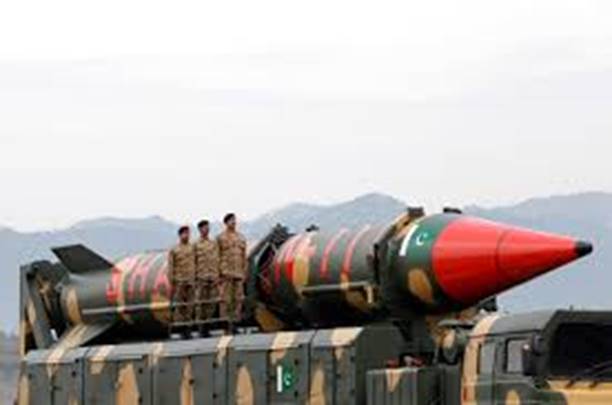
Reuters
Likely Cause of US Missile Claim
By Abbas Nasir
Pakistan
In its final five weeks in office, a bizarre claim has been made by a top US security official about US concerns regarding Pakistan’s ballistic missile program. This claim coincided with the announcement of US sanctions on a Pakistani state entity and three Pakistani Chinese firms.
In remarks made at the Carnegie Endowment for International Peace, US Deputy National Security Adviser Jon Finer said it was hard for the US to see Pakistan’s actions as anything other than an emerging threat to America.
“Pakistan has developed increasingly sophisticated missile technology, from long-range ballistic missile systems to equipment that would enable the testing of significantly larger rocket motors,” he said, adding: “If those trends continue, Pakistan will have the capability to strike targets well beyond South Asia, including the United States.”
Any analyst in his right mind would pour scorn over this claim. Pakistan is nowhere in direct confrontation with the US anywhere in the world and why in the world would it wish to acquire ballistic missile capability to target the US, a superpower?
Pakistan’s entire national security doctrine is based on the Indian threat which, given the conflicts in 1948, 1965, 1971, and the Kargil flare-up, is a legitimate concern.
So, what is really behind such claims and the third or fourth set of sanctions over a short span of time on Pakistan’s development of delivery systems?
My first thought was that when the US official referred to the potential capability to target the US it may have been a roundabout way of saying that perhaps Israel could come under threat. I quickly dismissed this notion. This, because Pakistan has never done anything more than offer ‘moral and diplomatic’ support to the Palestinian cause, and at this point in time, it isn’t in a position to take a tougher line against the Gaza genocide in terms of support beyond diplomatic fora.
The horror of babies and children being murdered, maimed and crippled through multiple amputations in a brutal indiscriminate bombardment because Israelis believe there are no ‘innocents’ in Gaza, including children, is on the one hand, and Pakistan’s economic state on the other.
That crippling reality makes it impossible for Pakistan to do anything, even if its civil and military ruling elite may have wanted to come to the Palestinians’ aid. It stays afloat on handouts from US-controlled IFIs and cash-rich US allies in the region. One false move and the tap from which the dollars drip (unlike the free flow of the past) will be turned off.
Therefore, one was forced to look elsewhere and one plausible reason came via The Friday Times’ founder and former editor Najam Sethi, who pointed to the broader canvas.
India enjoys a special status with the US as evident from the fact that it can freely import sanctioned Iranian (and even Russian) oil at much cheaper rates without drawing international (read: US) opprobrium, even as countries like Pakistan are sinking under the cost of their oil import bill but can’t look towards Iranian oil and petroleum products for the fear of incurring Washington’s wrath.
Delhi is thus pampered not only because of the size of its market — over 1.4 billion people with a middle-class component of more than 400 million — but also due to its location and physical size. It is seen as a counter to Chinese power in the region. India’s membership of the so-called Quadrilateral Security Dialogue alongside the US, Japan, and Australia was meant to curb China’s economic and military primacy in the region.
After the collapse of the Soviet Union 33 years ago, it was expected that US imperialism would remain unchallenged in a unipolar world. Since then, China has made rapid advances as an economic and military power. This has posed a challenge to US ambitions around the globe.
The formation of the BRICs alliance is another major challenge and irritant. After the Kazan (Russia) summit of the grouping in October this year, Indian Prime Minister Narendra Modi and Chinese President Xi Jinping agreed to disengage their troops on their disputed border. By Nov 6, the two countries had completed the process.
Apart from that improvement in China-India relations that will boost trade ties between the two, there was also talk at BRICS of setting up an alternative payment system for international deals to obviate secondary sanctions imposed on Russia, for example.
President-elect Donald Trump has already warned BRICS against the development of any alternative payment system/currency undermining the greenback and threatened to impose 100 per cent tariffs on the nine-nation bloc many more are keen to join, if it happened.
The bizarre claim regarding Pakistan’s missile program could well be to appease India and keep it onside to use it as a bulwark against China whether that is likely or not. India does see Islamabad’s nuclear and missile program as a major obstacle to its domination of the region and often sounds like a cry-baby when raising this issue. – Dawn (The writer is a former editor of Dawn)

